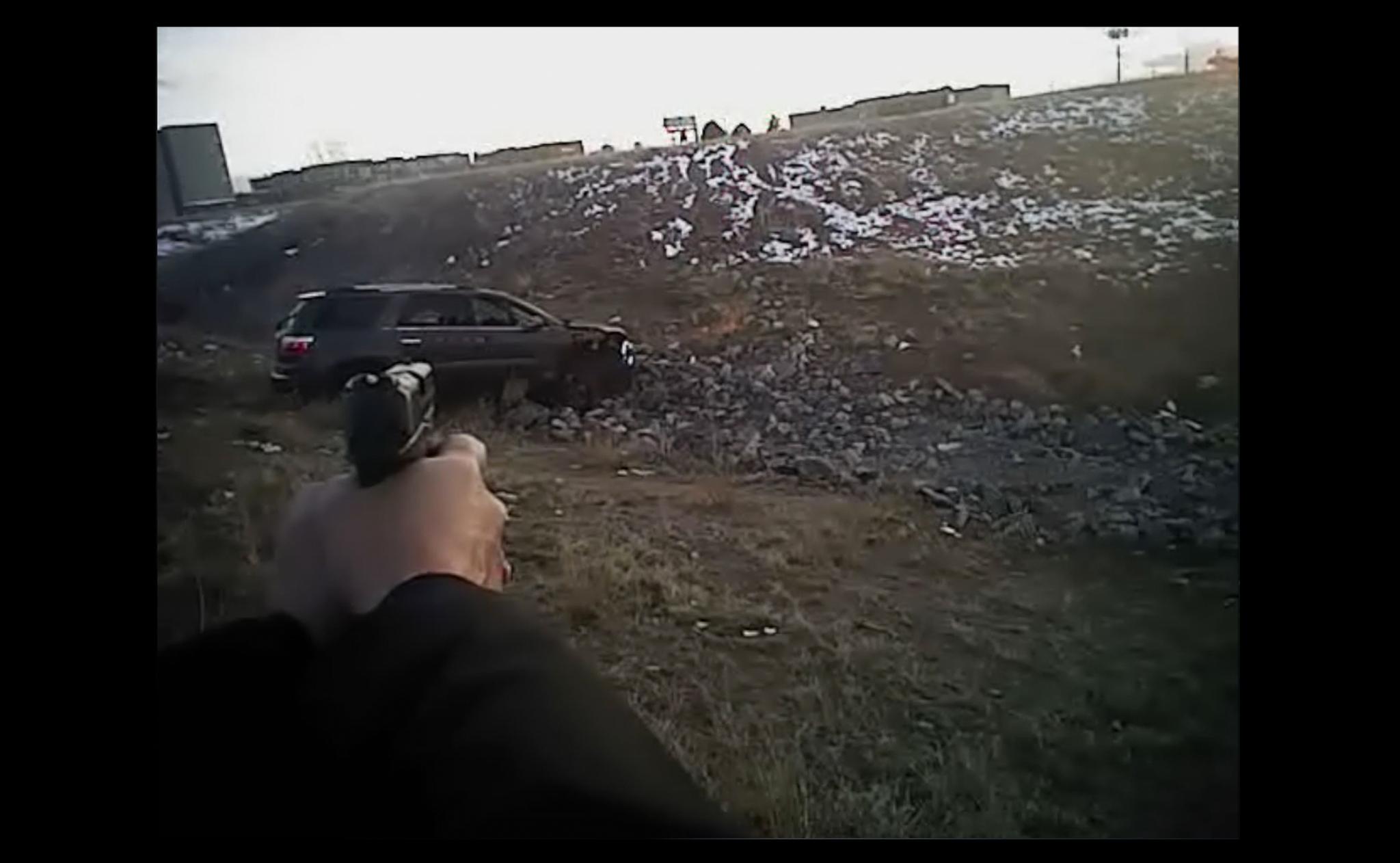UPDATE: On December 7, 2020, The Denver City Council adopted this contract by a vote of 12 to 1, with Councilwoman Candi CdeBaca voting against it.
Denver's police and sheriff departments plan to upgrade their body cameras and replace some with cameras that automatically start recording every time an officer or deputy draws a gun or arms a taser.
Denver Police Chief Paul Pazen described the new tech as "critical" to the city council's safety committee. He talked about law enforcement events that require "immediate and necessary response" by officers and deputies.
"You have to grab your radio, you have to put the car in park. All of these things, sometimes that, you know, hitting that button on the body cam becomes a challenge," Pazen said.
Denver Justice Project co-founder Alexander Landau, who was instrumental in getting local officers to wear body cameras in the first place, mostly applauded the step. But he cautioned that humans, not just technology, are key to criminal justice reform.
"I do think there are two things to be very cognizant about, one being the district attorney has always held the bully pulpit, the influence, the decision-making power around whether officers are charged with the crime or not," Landau said, "whether there is a video, pictures, manuscript, what have you."
The last Denver police officer to be charged with homicide was Michael Blake in 1992.
Landau said the city's police watchdog, the Office of the Independent Monitor, should get real-time access to the footage if the department has access to it.
Denver police officers are supposed to wear body cameras and record most incidents, from traffic stops to shootings to tactical operations, according to the Denver Police Department's operations manual. The cameras help officers solve crimes and train new officers, as well as exonerate or charge them with wrongdoing.
But officers don't always press record. In 2019, 49 violent interactions with members of the public were not captured on body cameras, according to a report from the Office of the Independent Monitor. Still, body cameras recorded 93 percent of all "use of force" incidents that year -- a far cry from 2016, the department's first full year of having body cameras, when only 15 percent of violent incidents were caught on film.
"Because we were early adopters with the body cams ... officers have done a great job of turning these things on, capturing these critical situations," Chief Pazen told Denverite. "This (new technology) is just a fail-safe in the most critical situations that we think is prudent."
Current technology allows plenty of other things to trigger camera recordings.
Getting out of a car, running after someone, giving a specific verbal command or an increased heart rate can all trigger an automatic recording on some body cameras in the market. Pazen said DPD considered cameras with more expansive technology but decided they could violate the department's policy against recording in certain areas. For instance, officers generally cannot record at healthcare centers or schools because of privacy concerns.
Landau has heard those concerns and understands them. He also knows how expensive it could be to constantly store video data, 24-7. (A big chunk of the $11 million goes toward storing recordings on the cloud.)
"I'm not entirely sure if this would be the best use of however much resources it would cost to roll this out for the community, because really the buck stops at the DA's office when it comes to indicting officers who perform levels of misconduct in our communities," Landau said.
Incidents involving officers and deputies drawing their weapons represent a tiny percentage of law enforcement's interaction with the public, according to a review of data from the police department and the Office of the Independent Monitor.
Pazen emphasized that of the more than 600,000 interactions DPD has with the public each year, most are recorded. He said the department's data shows that the cameras are part of "muscle memory" for officers.
"We, we want this footage," Pazen said. "The vast majority of the time, it actually shows that the officers are doing the right thing."
The punishments for failing to hit record are light include an oral reprimand for the first offense, a written reprimand and an audit of the officer's camera use the second time around, and one day of docked pay for the third offense in a span of one year, the DPD operations manual states. Things reset after 12 months of no infractions.
City council members are expected to vote on the contract extension later this month.













